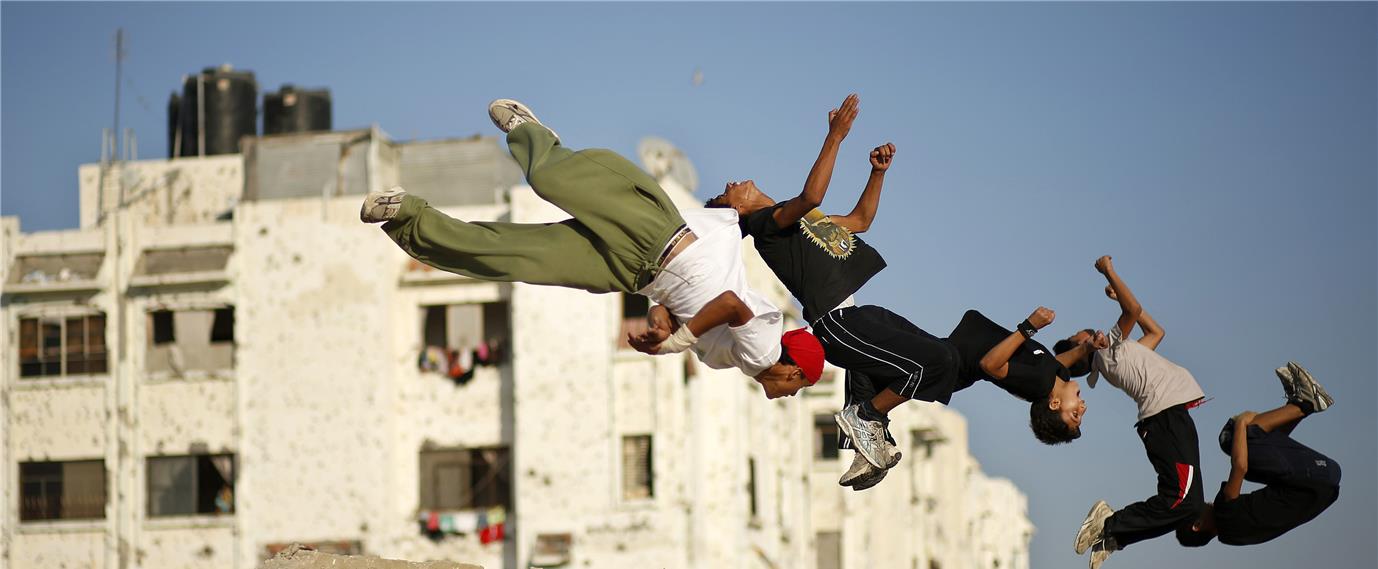بات الصحفيون اليوم يتلقّفون بلهفة التقنيات الجديدة التي تساعدهم في عملهم اليومي. ومن ضمن تلك التقنيات وأحدثها كاميرا 360 درجة، التي انتشرت على نطاق واسع في الآونة الأخيرة. ولم يعد السؤال الآن مهمّا إن كانت الوسائل الإعلامية تهتم باستخدام هذا النوع من التقنيات أم لا، بل السؤال الأهم هو، كيف وُظِّفت، وما الهدف من توظيفها أساسا؟
التقنيات الجديدة في متناول الجميع، وهي لن تخرج –مهما تطورت- عن كونها وسائل لتعزيز القصة الصحفية، لا أن تكون التقنية بحدّ ذاتها هي القصة.
وحينما بدأت الوسائل الإعلامية استخدام التصوير بتقنية الكاميرا 360، عمل معهد الجزيرة للإعلام (مركز الجزيرة للتدريب والتطوير سابقا) على التصوير بها من باب التجريب، متخذا من أحد المخيمات الفلسطينية في لبنان مكانا للقصة الصحفية، حيث تكتظ العناصر البصرية في ذلك المكان، وخصوصا تلك التفاصيل التي تعكس بؤس حياة اللجوء ويستطيع المشاهد أن يكتشفها بنفسه.
لمشاهدة التقرير، الرجاء الضغط هنا
اتفق البعض مع تلك التجربة في العموم واختلف آخرون، وكان رأي المعهد أن يذهب باتجاه التجريب المستمر والاستثمار في التقنية لتعزيز القصة الصحفية وتقريبها للمتلقي.
الوجهة هذه المرة هي غزة.. كانت لعبة الباركور قد انتشرت بين شبابها وصبيانها منذ عام 2007، حيث الحصار مفروض ولا أماكن حقيقية للَّعب إضافة لنقص المدرّبين والأماكن التدريبية، ما جعل أبناء غزة يتخذون من الركام والدمار والهواء الطلق ملاعب لهم.
ثمة قصة صحفية مكتملة الأركان، المكان والزمان وأحداث مثيرة بل خارجة عن المألوف وأبطال.. وكانت زاوية المعالجة هذه المرة تتطلب أمرا غير مألوف يتناسب والقصة المسرودة ويظهر تفاصيلها التي تعتمد كثيرا على الحركة وارتباطها بالأماكن.
من هنا جاءت فكرة المعهد لاستخدام تقنية التصوير بكاميرا 360 بحيث يصبح المشاهد مشاركا في الحدث دون أن يتشتت تفكيره على العناصر البصرية التي بدت مترابطة وعلى علاقة بموضوع القصة.
وفي حين كان المعهد قد صور تقارير سابقة تحدث فيها مراسلون صحفيون، كان هذا التقرير صادرا من صبي مشارك في تلك القصة، فكان السرد من هذا المنظور الداخلي موفقّا، وجاءت الصور المتتابعة متناسبة مع تسلسل السرد.
فإن ضغط المشاهد على الفيديو فسيرى أطفالا يلعبون ويقفزون بين البيوت وأسقف الزينكو، في الوقت الذي يتحدث فيه "الرواي" عن ذلك، والأمر سيان حين يتحدث عن كيفية صناعتهم للمزالج الخشبية أو عن تجمع الناس حولهم لرؤية عروضهم الرياضية التي باتت تكتسب شكلا أكثر احترافية، بمعنى أن استخدام تلك التقنية في تقرير كهذا بالذات لم تُخرج المشاهد من جوّ القصة إلى عناصر أخرى موجودة في المكان نفسه، لكن ليس لها علاقة بمحتوى القصة.
المقاطع الموسيقية الهادئة التي تخللت حديث "الراوي" منحت مساحة جيدة للمشاهد للتجول داخل التفاصيل المرويّة ومعاينتها بل والشعور أنه جزء منها.
لمشاهدة تقرير الباركور في غزة، اضغط/ي هنا..







































